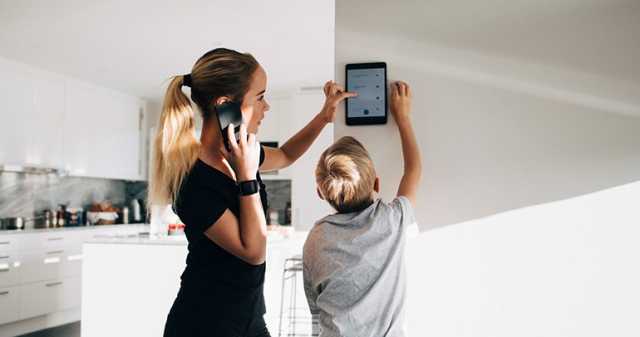In the fast-evolving world of real estate, smart homes for rental properties represent a groundbreaking innovation that is reshaping the way homeowners and businesses approach property management. As technology continues to advance, the integration of smart home systems has become increasingly popular among property owners and tenants alike. These systems not only enhance the living experience but also provide a competitive edge in the rental market. In this article, we will explore the myriad benefits of smart home technology for rental properties and how it is transforming the industry.

The Rise of Smart Home Technology
Smart home technology has seen a meteoric rise in recent years, with more and more property owners recognizing its potential to improve tenant satisfaction and streamline property management. The integration of devices such as smart thermostats, security systems, and lighting controls allows for a more efficient and convenient living environment. For landlords, this means reduced energy costs, enhanced security, and the ability to monitor and manage properties remotely.
Enhancing Tenant Experience
One of the most significant advantages of smart homes for rental properties is the enhanced tenant experience they offer. With features like voice-activated assistants, tenants can control various aspects of their living space with ease. This level of convenience is highly attractive to modern renters who are accustomed to using technology in their daily lives. Additionally, smart home systems can provide real-time updates and alerts, ensuring that tenants are always informed about important matters such as security breaches or maintenance issues.
Boosting Energy Efficiency
Energy efficiency is a primary concern for both landlords and tenants. Smart home technology offers an effective solution to this challenge by optimizing energy usage through automated systems. Smart thermostats, for example, can learn a tenant's schedule and adjust the temperature accordingly, resulting in significant energy savings. Furthermore, smart lighting systems can be programmed to turn off automatically when a room is unoccupied, reducing electricity consumption.
Streamlined Property Management
For property owners, managing multiple rental properties can be a daunting task. However, with the advent of smart home technology, property management has become more streamlined and efficient. Landlords can now remotely monitor and control various aspects of their properties from a single platform. This not only saves time but also reduces the need for on-site visits. Additionally, smart home systems can provide valuable data on tenant behavior and property performance, allowing landlords to make informed decisions about maintenance and improvements.
Ensuring Security and Safety
Security is a top priority for both landlords and tenants. Smart home technology offers robust security solutions that enhance the safety of rental properties. Smart locks, for example, allow tenants to enter their homes using a smartphone app, eliminating the need for physical keys. This not only provides convenience but also reduces the risk of unauthorized access. Additionally, smart security cameras can be installed to monitor the property and send alerts to landlords and tenants in case of suspicious activity.
Attracting Tech-Savvy Tenants
In today's digital age, tech-savvy tenants are increasingly seeking rental properties equipped with the latest smart home technology. By investing in these systems, landlords can attract a broader pool of potential tenants who are willing to pay a premium for the added convenience and efficiency. This can lead to higher occupancy rates and increased rental income.
Conclusion
The integration of smart home technology in rental properties is a game-changer for both landlords and tenants. By offering enhanced convenience, improved energy efficiency, and robust security features, smart homes provide a competitive advantage in the rental market. As the demand for smart home systems continues to grow, property owners who embrace this technology will be well-positioned to succeed in the ever-evolving real estate landscape.
For more insights on smart home technology and rental properties, check out this guide or explore smart home gardening tips. Additionally, learn about smart homes and health monitoring to enhance tenant well-being.
For a comprehensive understanding of setting up a smart home, visit this smart home checklist.

FAQs
What are the benefits of smart homes for rental properties?
Smart homes offer numerous benefits for rental properties, including enhanced tenant experience, improved energy efficiency, and streamlined property management. These features attract tech-savvy tenants and provide a competitive edge in the rental market.
How do smart home systems improve security in rental properties?
Smart home systems enhance security by offering solutions such as smart locks and security cameras. These devices allow for remote monitoring and control, providing peace of mind for both landlords and tenants.
Can smart home technology help reduce energy costs?
Yes, smart home technology can significantly reduce energy costs through the use of smart thermostats and lighting systems. These devices optimize energy usage by adjusting settings based on occupancy and tenant schedules.

